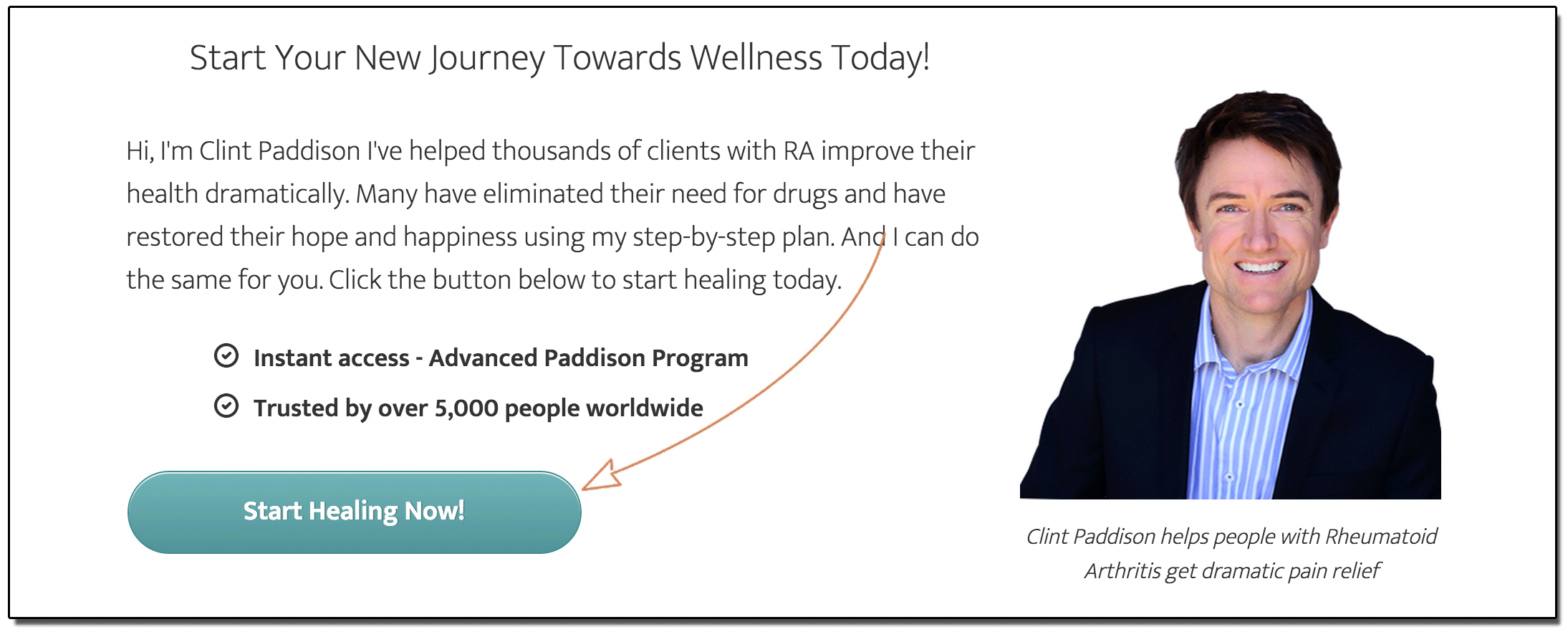Hi, it’s Clint Paddison here with another tip on reversing rheumatoid arthritis symptoms, and I just got an email from someone who’s doing the Paddison Program and her email went like this: “Hi, Clint. I for the first time have reduced my C reactive protein to the normal range. I’m so excited.” And so I respond and I say Congratulations! This is awesome. Well done. Keep up the great work. And her response was, “Yeah, but I’m still not sleeping well at night and so I’m tired all day. And that short exchange,” all of the feeling of success and celebration and reward and congratulations says instantly just been slammed with the “yeah – but” syndrome.

The “yeah – but” syndrome takes all of this positivity away from a situation and focuses it on the next problem. And this is just like getting straight A’s all but one exam and getting maybe a C in one subject. So you’ve got all these A’s, let’s call it, let’s call three A’s and 1 C and you look at the results. And instead of being celebrating and being happy about these three A’s, you’ve got this saying and you focussed on and disappointed. I didn’t get all A’s and this is the “yeah – but” syndrome.
Now, imagine if the human body were a person and it’s done its best and it’s healed and gotten rid of so much inflammation and got that inflammation down to a normal C reactive protein. And it just reveals itself through being tested through blood test result and the brain or the person responding to that says, well, that’s great, but you’re still not making me sleep well at night. How do you think that person equivalent of the body is going to respond to that? They’re going to be frustrated. They don’t want to serve that kind of direction or that kind of brain. That kind of mentality. It’s not motivating to do more of it. And so this yeah-but syndrome can be really detrimental when you’re trying to heal rheumatoid arthritis.
When I got improvements to my C reactive protein that didn’t even at the time take it to normal. I mean, that took a long time, too. I was at C reactive protein at 56 mg per litre at one point and I had to work that all the way back down. And every time it improved, it was massive celebration because that’s what I wanted to focus on. I had so many problems going on, so much inflammation, so many joints. But focussing on the improvement tells the universe, tells the body, tells the people around you that the focus is in the right place, that the energy is in the right place, and where focus goes, energy flows.
So we have to really remember this. And it’s not about neglecting that we have some improvements still to follow. Right? It’s not about saying, well, the sleep challenges aren’t an issue. No, they are just the next thing that we can focus on so we can celebrate. Get that print out of that blood report, stick it on the fridge, celebrate. Tell everyone, tell people that you know that you care about, share it with others and be proud of it and then think, OK. I’ve also got some extra things to work on in the same strategies that I used to create the result to get that blood test so good and all of the resources that I used and my attitude. That can also be applied to improving my sleep at night. It’s the same person and the same resourcefulness and the same dedication. It’s just a different goal and we can achieve that, too.
So let go of the yeah-but just be like, yeah! all right. And that’s where the power is. We can get well when we continue to be grateful for the successes at a deep level and celebrate them massively because when we do that, more of those good things come into our lives and more of the results that we’re wanting to achieve will show up for us. So I hope you find this helpful. And if you want more videos just like this or you want a complete program to help yourself transform your life and improve yourself with rheumatoid or inflammatory arthritis. Go to paddisonprogram.com. Bye for now. See you in the next video.
